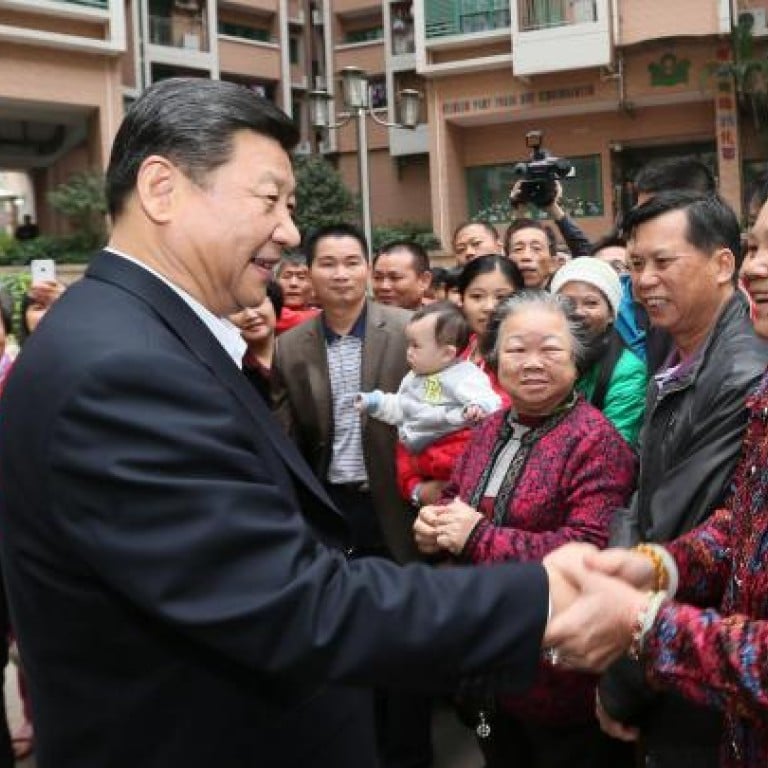
Analysts welcome Xi Jinping's changes with caution
Experts hail Xi Jinping and other new leaders' interest in reform but caution that it is too early to make meaningful judgment
A month into office, the Communist Party's new leaders have shown an interest in change - symbolic or meaningful - to differentiate themselves from their predecessors.
While analysts have welcomed the changes introduced by the party's fifth generation of leaders, who were given the keys to the world's biggest political machine on November 15, they cautioned that it was too early to draw conclusions about the team tasked with guiding the world's second-largest economy and bringing about the so-called "Chinese renaissance" promised by new party general secretary Xi Jinping.
Gu Su, a political analyst and constitutional law professor at Nanjing University, said the new leadership had introduced at least four changes.
They are measures to reform the previously extravagant work style of senior officials; dealing swiftly with corruption allegations against about a dozen senior officials; high-profile support for reform by Xi and other top leaders; and an obvious change in the style of language used by leaders, replacing rhetoric with down-to-earth talk.
Gu was referring to a Politburo decision early this month to revamp the working style of senior officials. It issued eight new rules, calling for cutbacks to official motorcades and related traffic controls on the capital's notoriously congested roads, fewer empty words in official speeches and less exalted treatment of top leaders.
In the past month, at least 10 senior provincial and local officials have been snared in a graft-busting blitz under new party discipline chief Wang Qishan , also a member of the party's supreme, seven-member Politburo Standing Committee. Wang's appointment is being seen as an indication of the new leadership's commitment to dealing with the corruption epidemic that is a major source of public dissatisfaction with the ruling party and government. Wang is known as capable administrator, troubleshooter and problem-solver.
Professor Ma Guoxian, a political affairs analyst and director of Shanghai University of Finance and Economics' Public Policy Research Centre, summed up the changes thus: "In a word: refreshing. Many things are new. They have shown they are far different from the third and fourth generation of leaders, in their mindset, behaviour and language."
The party's third-generation leadership was headed by Jiang Zemin and its fourth by Hu Jintao.
Kerry Brown, executive director of the China Studies Centre at the University of Sydney, said there was both an upside and a downside.
"Upside - way better political messaging and communication. The era of the stolid Hu is over," he said. "Downside - even rhetoric has costs. How exactly is Xi going to attack vested interests and corruption? We are all waiting in anticipation."
Zhang Lifan, a political analyst formerly with the Chinese Academy of Social Sciences, said the new leaders' actions so far had been designed to promote their images and win back public trust that was lost under the party's third- and fourth-generation leaders.
Professor Steve Tsang, head of contemporary Chinese studies at the University of Nottingham, said: "They have made the right noises but whether they will actually deliver what they say remains to be seen."
Xi concluded a five-day tour of Guangdong - his first inspection trip since becoming party chief - last week. During the tour he made a string of high-profile calls for further reform and opening up.
"It reveals more about how unjustifiably lavish the norm has so far been for senior officials entertaining themselves at public expenses," Tsang said.
He said Xi's "southern tour" appeared to borrow from Deng Xiaoping's 1992 tour but that Xi's visit had not marked the "relaunch" of anything in particular, "except an image of the party leadership too tarnished by its own recent record".
"On the whole, it is good to see Xi taking initiatives and seizing the opportunity to project a more positive image, but what he has so far done is not, or at least not yet, convincing," Tsang said.
Liu Kang, a professor of Asian and Middle Eastern studies at Duke University in the United States, said that it would take time for observers to reach even a primary judgment.
"It takes at least one or two years, not months, to come to some judgment," Liu said.
David Shambaugh, director of the China Policy Programme at George Washington University, said: "Xi has continued to direct China's maritime policy with respect to the East and South China Seas, clearly staking a position with China's staunch nationalists."
"These are all symbolically interesting moves by Xi, with some encouraging and some not. We will have to wait and see how they become manifest over time, but Xi is clearly moving quickly to stake out an agenda for himself."

